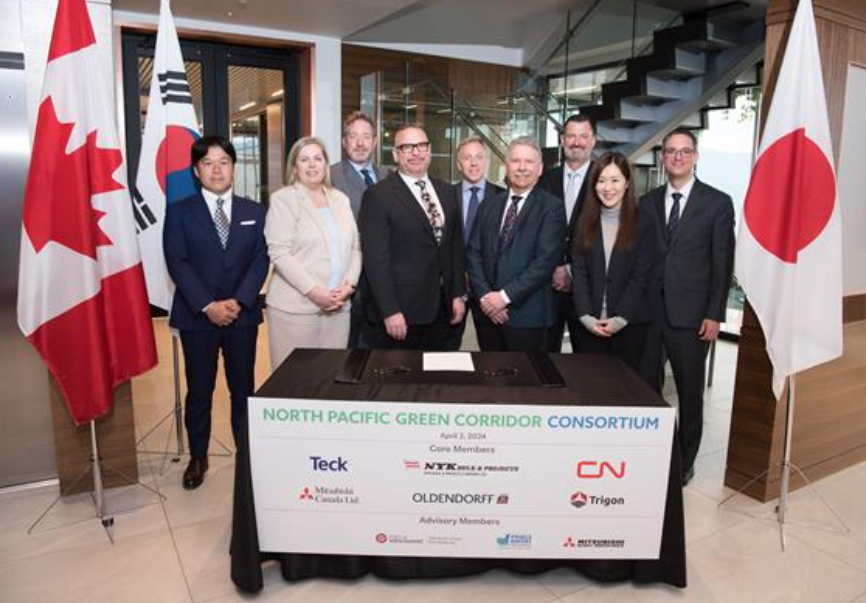North Pacific Green Corridor proposed to decarbonize shipping


Global industry leaders from North America, Asia and Europe announced the formation of the North Pacific Green Corridor Consortium (NPGCC) whose members and partners will work together to decarbonize the value chain for commodities between North America and Asia.
The Consortium will apply its collective expertise to develop a corridor for the decarbonized transportation of multiple commodities, including metal concentrates, steelmaking coal, and agricultural products. The members hope to be the catalyst for decarbonization efforts, exploring new markets for low carbon fuels in North America and Asia, exploring propulsion options, and showcasing how carbon reduction initiatives can strengthen commercial partnerships.
The nine founding members are Canadian National Railway Company (CN), Mitsubishi Canada, Mitsubishi Heavy Industries, NYK Bulk & Projects Carriers, Oldendorff Carriers, Prince Rupert Port Authority, Teck Resources, Trigon Pacific Terminals, and Vancouver Fraser Port Authority. The NPGCC is open to additional members and partners, in particular end-use customers, to contribute to the development and implementation of the green trade corridor.
Ian Anderson, Teck’s SVP and chief commercial officer said: “The launch of the North Pacific Green Corridor Consortium is a major step forward in achieving a sustainable and decarbonized future for the critical minerals value chain. The NPGCC aligns with the Government of Canada’s Green Shipping Corridors Framework by fostering international collaboration and setting ambitious milestones to create a net-zero future from producer to shipper to customer. Teck is excited to join the consortium partners on this major decarbonization initiative as part of our ambition to achieve net-zero Scope 3 emissions by 2050."
The NPGCC's activities will focus on pathways to optimize energy efficiency with the specific goal of advancing projects and infrastructure required to achieve meaningful emissions reductions in the near term. Consideration will be given to the potential production, storage and bunkering of lower-carbon fuels, and propulsion options for use by NPGCC members and other parties. The group will also engage in research, knowledge-sharing, advocacy, member coordination, and recruitment to accelerate members’ progress towards their decarbonization objectives.
Comments